CONTACTAbout UsCAREER OPPORTUNITIESADVERTISE WITH USPRIVACY POLICYPRIVACY PREFERENCESTERMS OF USELEGAL NOTICE
© 2025 Equal Entertainment LLC.
All Rights reserved
All Rights reserved
By continuing to use our site, you agree to our Privacy Policy and Terms of Use.
We need your help
Your support makes The Advocate's original LGBTQ+ reporting possible. Become a member today to help us continue this work.
Your support makes The Advocate's original LGBTQ+ reporting possible. Become a member today to help us continue this work.
COMMENTARY: Don't know much about history, do they?
That's a sad statement to make about the U.S. Congress, but evidently a true one, given the recent pile-on of Republican senators calling for repeal -- or "investigation" -- of birthright citizenship. Senate majority leader Harry Reid noted that his colleagues have "either taken leave of their senses or their principles."
In fact, they may have taken leave of both, as their ridiculous, racist campaign betrays a basic misunderstanding of American history and of the Constitution.
First, a quick history lesson: Before the Civil War, there was no definition of American citizenship. Slaves were not citizens, and women's citizenship was tenuous at best. A woman who married a foreign national could be stripped of her citizenship, and of course, women, slaves, and most nonwhites could not vote. Neither the Declaration of Independence nor the U.S. Constitution, as originally ratified, defined who was an American citizen or how to become one. The Supreme Court's infamous Dred Scott decision -- which brought pre-Civil War tensions closer to a boil by holding that Congress could not prohibit slavery in federal territory -- reaffirmed that "Negroes" were not and could not be citizens.
For slaves, the needed result of the Civil War was not just freedom from bondage but entry into the social contract. Freedom without citizenship was an empty promise, and thus 2-1/2 years after the Thirteenth Amendment ended slavery, Congress ratified the Fourteenth Amendment.
The Fourteenth Amendment was the centerpiece of Reconstruction, and it finally provided the United States with a definition of who exactly was a citizen. Its very first words read: "All persons born or naturalized in the United States and subject to the jurisdiction thereof, are citizens of the United States and of the State wherein they reside."
Reread that sentence and ask yourself, Without it, who would be an American? Would I? On what basis? In a nation where 98% of us are here as the result of immigration at some point in time, who among us has been here "long enough"? Who gets to decide?
The spectacle of our country's leaders calling for a repeal of birthright citizenship is despicable, disappointing, and thoroughly predictable. For too many of our politicians, history and context are irrelevant; all that matters is the next election.
Of course, the people being targeted by this rhetoric are undocumented immigrant workers, the majority of whom are Latino. These millions of workers keep American agriculture, construction, and service industries afloat. They often earn below the minimum wage and are too intimidated to demand the safety rules and labor protections to which they are legally entitled. The echoes of slavery are loud: People of color working for next to nothing, without legal standing or any current hope of ever gaining it, whose toil supports the "American way of life" -- today not cotton but cheap food, overbuilt housing, and disposable consumer goods. To complete the disenfranchisement of undocumented workers by denying their children the very rights for which we fought the Civil War would be the perfect irony.
LGBT people should find this particularly disgusting. At Immigration Equality, we hear every day from people who face double discrimination: because they are immigrants and simultaneously because they are also lesbian, gay, bisexual, or transgender.
Those dual lines of attack are no coincidence: The very same people who are leading the charge to strip citizenship from the children of immigrants are those who have long led the charge to strip the rights of full citizenship from LGBT people. On the latter front, their crusades are beginning to falter, with historic judicial and legislative victories affirming the rights of LGBT people. Sadly, politicians desperate for a scapegoat in an era of recession and war are attacking not only the newest citizens, they are attacking our precious Constitution.
The Fourteenth Amendment is a cornerstone of our liberty -- it is precisely what makes us who we are, and without it we would not know ourselves as Americans.
Rachel B. Tiven is executive director of Immigration Equality and the Immigration Equality Action Fund. This article is the opinion of the writer and not The Advocate.
From our Sponsors
Most Popular
Bizarre Epstein files reference to Trump, Putin, and oral sex with ‘Bubba’ draws scrutiny in Congress
November 14 2025 4:08 PM
True
Jeffrey Epstein’s brother says the ‘Bubba’ mentioned in Trump oral sex email is not Bill Clinton
November 16 2025 9:15 AM
True
Watch Now: Pride Today
Latest Stories
Japan's ban on marriage equality is constitutional, according to a Tokyo court
November 28 2025 4:59 PM
How a queer fashion show took on New York Fashion Week
November 28 2025 4:58 PM
8 LGBTQ+ films coming in 2026 that we can't wait to see
November 28 2025 12:00 PM
Lavender marriages: What queer unions and relationships can teach us about love and safety
November 27 2025 9:43 PM
How a united message of 'Tax the Rich' could make life more affordable, and win elections
November 27 2025 8:00 AM
Trump administration won't observe World AIDS Day
November 26 2025 5:34 PM
Psychiatrist explains the Kinsey scale to two men and blows their minds
November 26 2025 3:30 PM
Funding cuts could cause 3.3 million additional HIV infections by 2030: report
November 26 2025 11:01 AM
Florida driver arrested and accused of trying to run over LGBTQ+ running group
November 26 2025 10:56 AM
Democrats and rights groups accuse Trump's Justice Department of ignoring hate crimes
November 26 2025 9:45 AM
How the Boy Scouts became a target of the Trump administration's wrath
November 25 2025 6:08 PM
Trump can't have 'Defying Gravity' or 'holding space,' says queer media's Tracy E. Gilchrist
November 25 2025 5:27 PM
This year’s most inspired gifts for every kind of connection
November 25 2025 1:38 PM
Elton John gives update on his vision: 'There is hope'
November 25 2025 1:03 PM
Scouting America 'surprised and disappointed' after U.S. military threatens to cut ties
November 25 2025 11:16 AM
Illinois Democratic candidate glitter bombs anti-LGBTQ+ Christian group
November 25 2025 11:05 AM








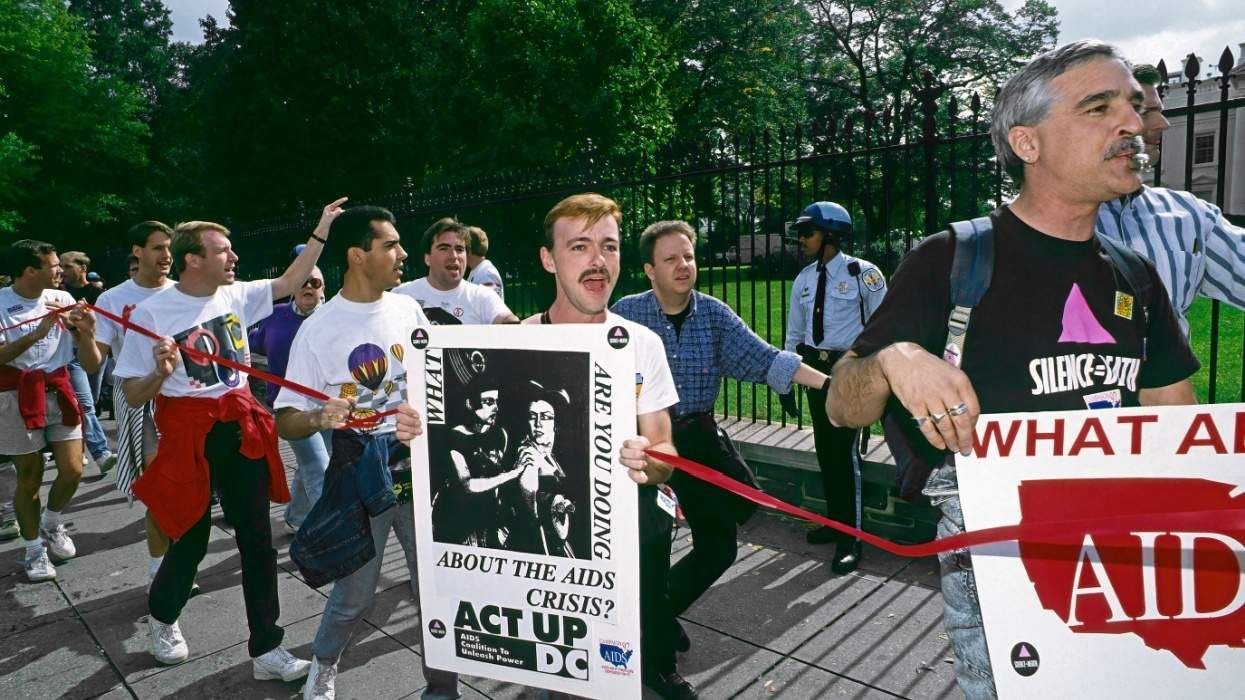

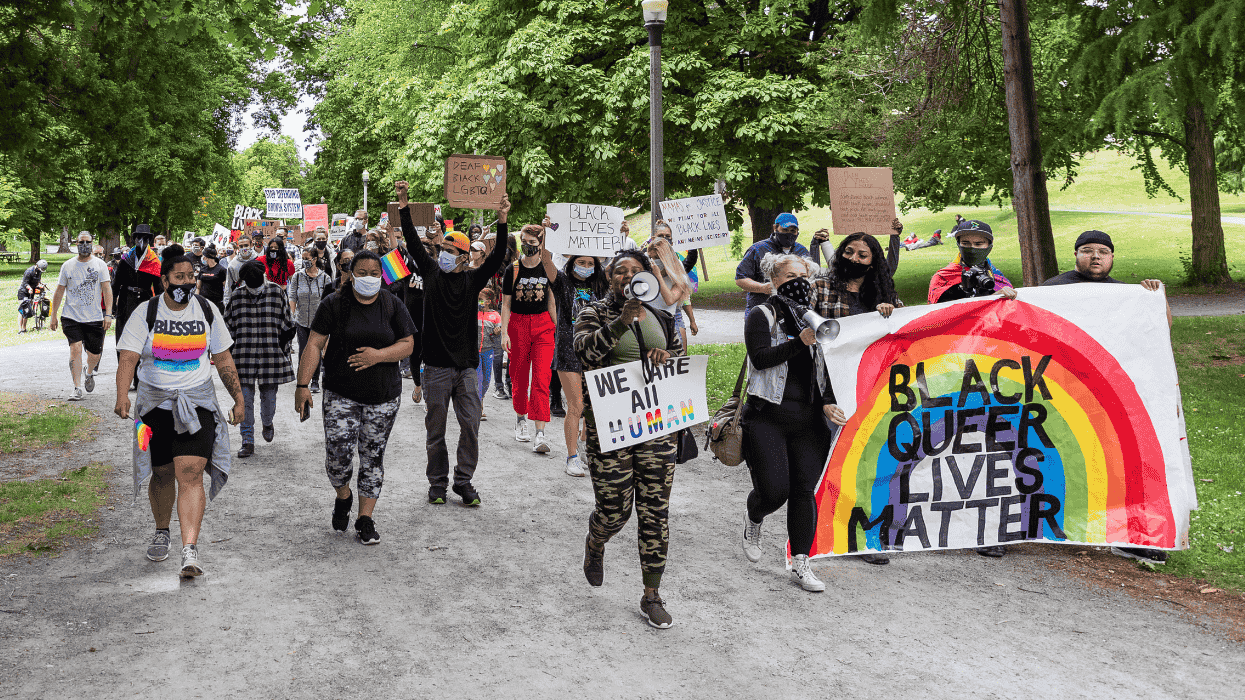





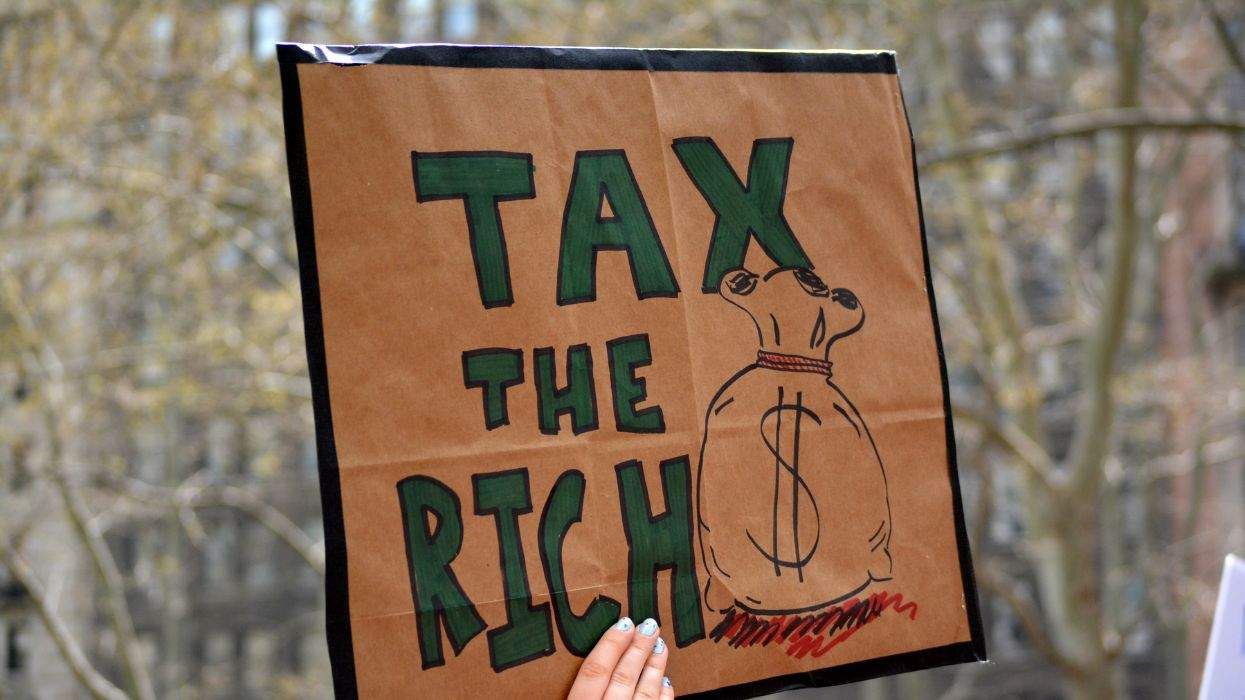
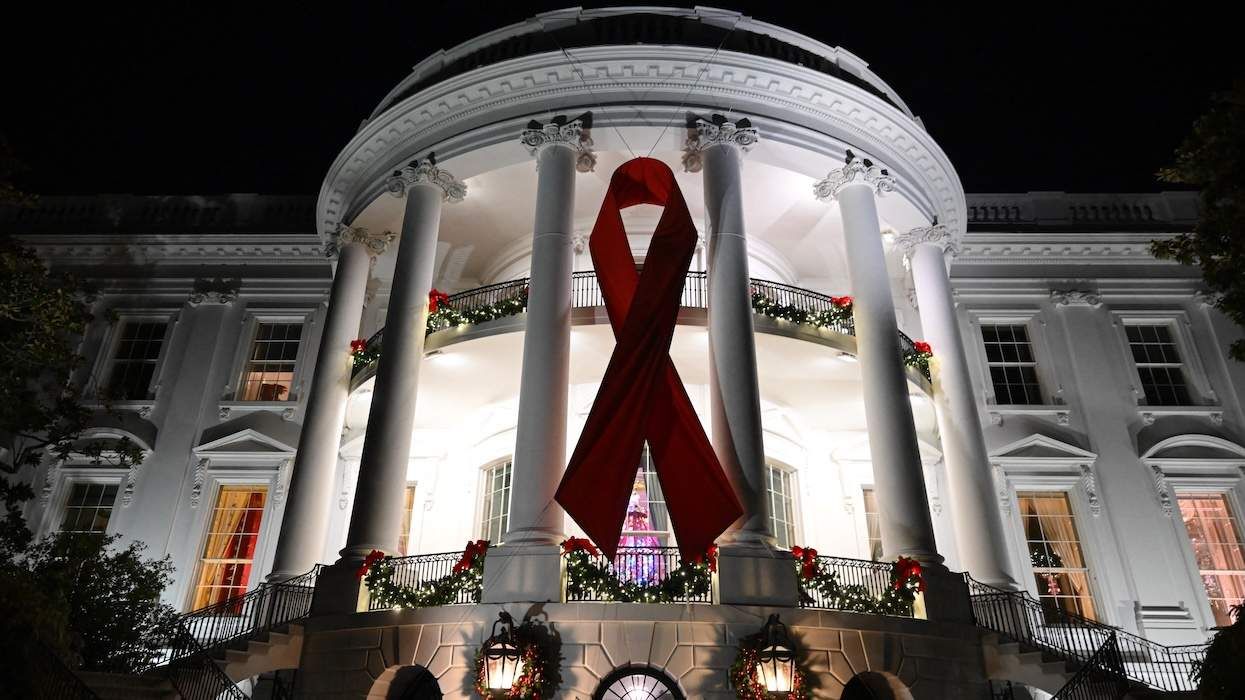
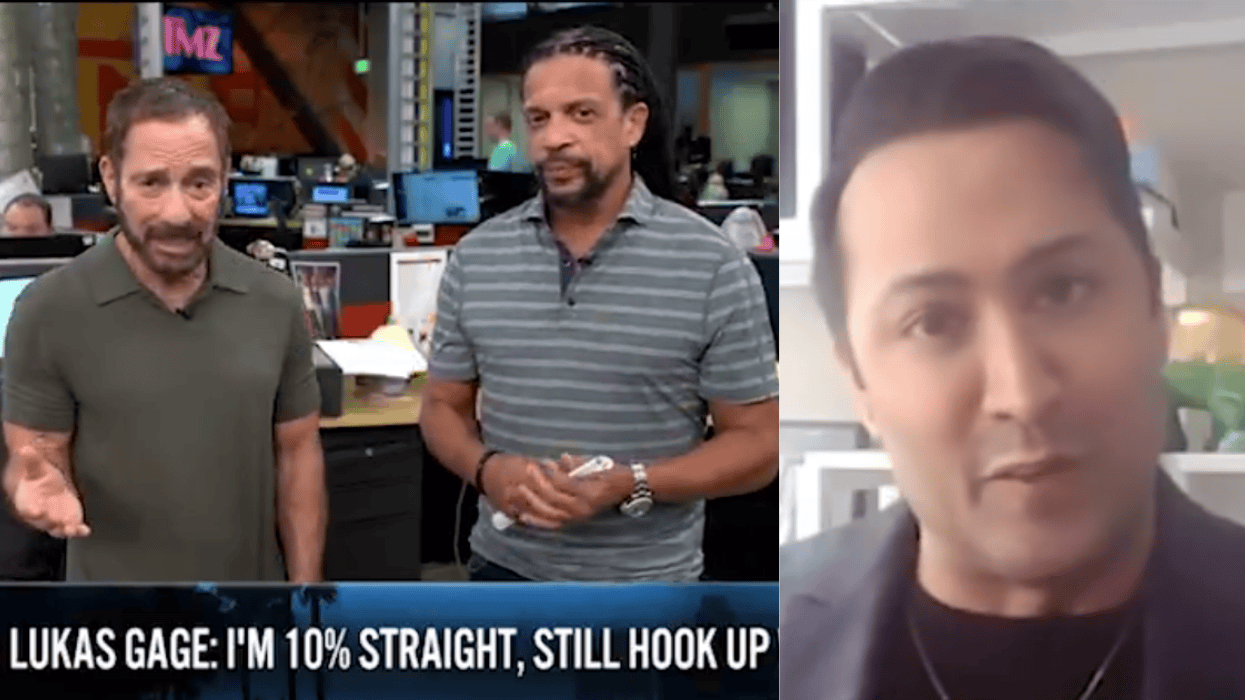
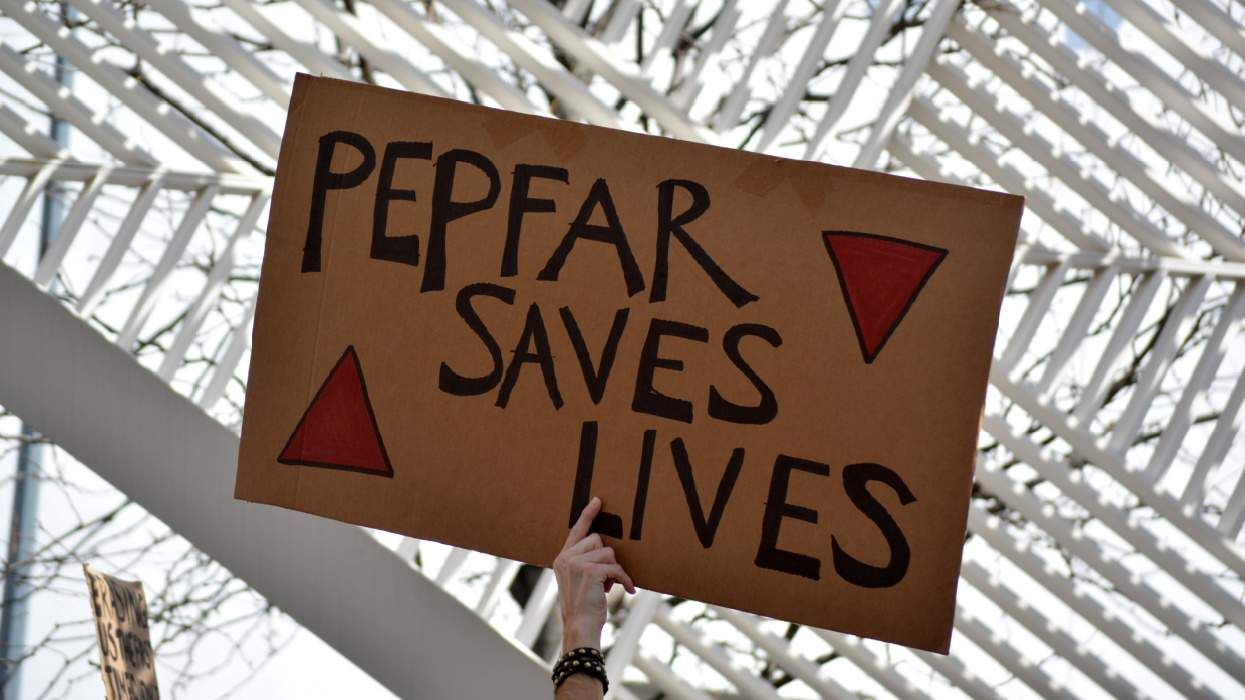

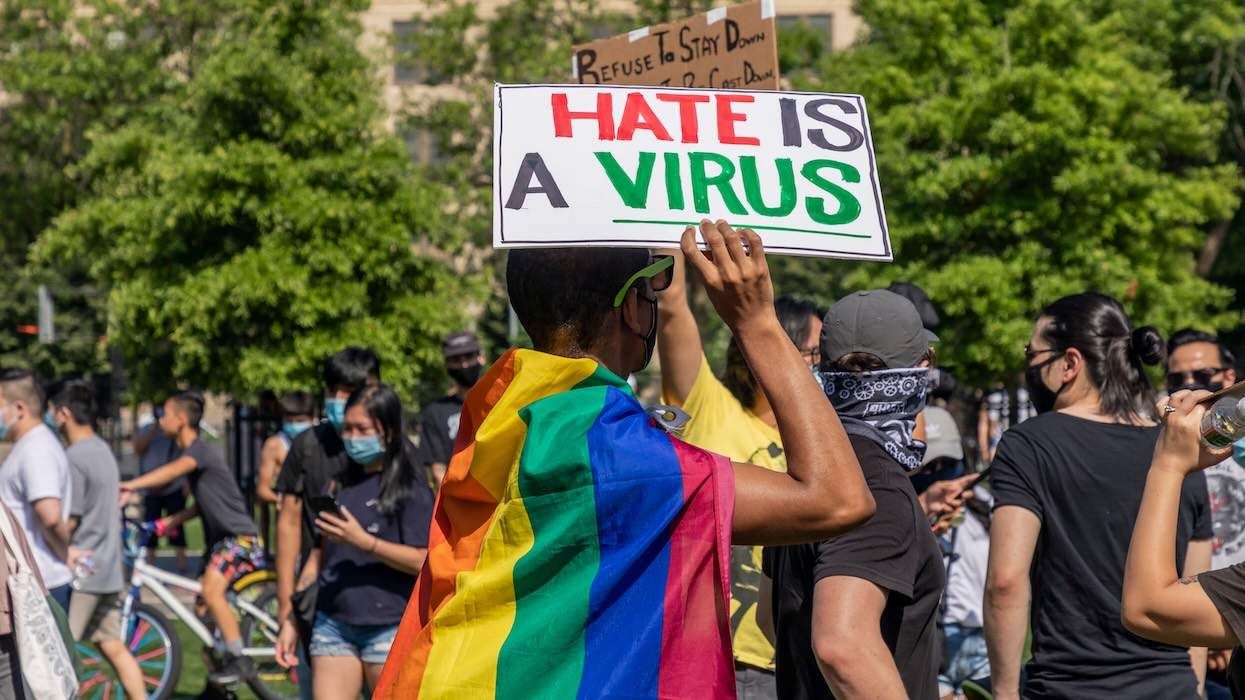














































Charlie Kirk DID say stoning gay people was the 'perfect law' — and these other heinous quotes